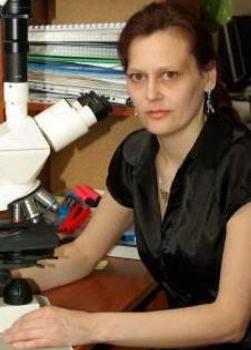Sep 18 2015
Through reconstruction we are able to understand the ecological processes which took place in the past, extrapolate our results to the future, predicts the changes in biocenoses under specific ecological and climatic conditions, - explains Larissa Frolova, Research Associate at the Paleoclimatology, Paleoecology, and Paleomagnetism Lab of the Institute of Fundamental Medicine and Biology. - This is very important and is directly tied to the economy. Climatic changes influence biota, environment, and our lives.
 She is the Research Associate at the Paleoclimatology, Paleoecology, and Paleomagnetism Lab of the Institute of Fundamental Medicine and Biology. Credit: Inna Basyrova
She is the Research Associate at the Paleoclimatology, Paleoecology, and Paleomagnetism Lab of the Institute of Fundamental Medicine and Biology. Credit: Inna Basyrova
Each geological period is marked by specific temperature and abiotic conditions. Using geological dating and analyzing relevant biota helps researchers to reconstruct geological portraits of the respective periods.
Arctic is the best place for such research - permafrost zones have not yet been subjected to anthropogenic destruction. That's why fossils have much better chances to be preserved there.
Dr. Frolova adds, "Arctic is very attractive to scientits because there is a significant lack of information about it. The Siberian Arctic is virtually untouched by our peers".
Employees of KFU have more than once been the parts of expeditions to the basin of Kolyma, Yamal peninsula, Kharbey lakes, Samoylovsky island in the delta of Lena. Some of the research is conducted together with the colleagues from the Alfred Wegener Institute.
The research is ongoing; some of the results have been published in Nauka i Obrazovaniye, Nova Acta Leopoldina, and other journals.